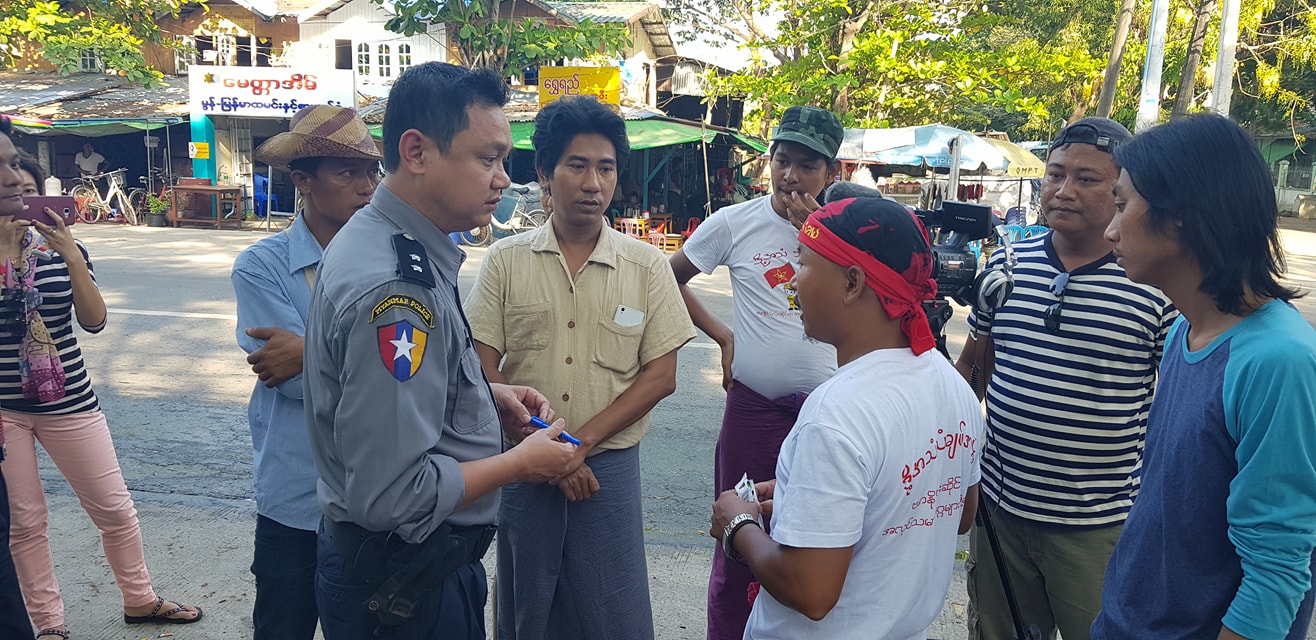Thingyan is a time when the rules are relaxed. People wear more revealing clothing, open flirtation between strangers is suddenly acceptable, and alcohol consumption can begin well before noon. Myanmar people use the freedom Thingyan provides to indulge in activities normally frowned upon during the rest of the year, and those who participate in the tradition of thangyat are no different.
Thangyat, a call and response performance consisting of song, poetry, and dance performed during Thingyan, is an age-old tradition. Officially banned from 1989 to 2013, thangyat provides an important avenue for Myanmar people to express their dissatisfactions with their rulers, whether they are kings, generals, or presidents. Generally satirical and usually quite harsh, thangyat performers use their briefly condoned platform to mock authority and those who hold it.
The NLD-led government, which has been criticized in the past few years for their lack of commitment to freedom of speech, has struggled to present a consistent attitude towards thangyat. While there seemed to be no official restrictions on thangyat performances in 2016, in 2017 it was announced that performers would be required to submit the text of their performance for government approval ahead of time – a tactic that was also employed under the Thein Sein government.
Though there was no official censorship board to clear this year, some performers claim that they were met with police harassment when they tried to participate in this tradition. On his Facebook page, Aung Aung Kyaw writes about one such experience.
He wrote: “They have been interrogating thangyat performance groups since yesterday. Today, they are trying to prevent us from performing. So, the only thing I have to ask is, are you a democratic government?”
Other groups had a much more positive reception. A group started by Dagon University students took aim at everything from the price of onions to questioning whether the 88 Generation leaders were committed to their party or the people of Myanmar. Like many other groups around the country, they were able to perform freely.
Thangyat is an important Thingyan tradition – a one said to be just as old as the practice of throwing water during the new year. As Myanmar continues with its political changes, the state of thangyat provides an interesting insight to the state of free speech in the country.
Late last year, a report by the group Free Expression Myanmar released a report asserting that prosecutions under the controversial online defamation law, which is almost always used to punish political dissent, have escalated under the NLD government since it came to power in April 2016.





Reader Interactions